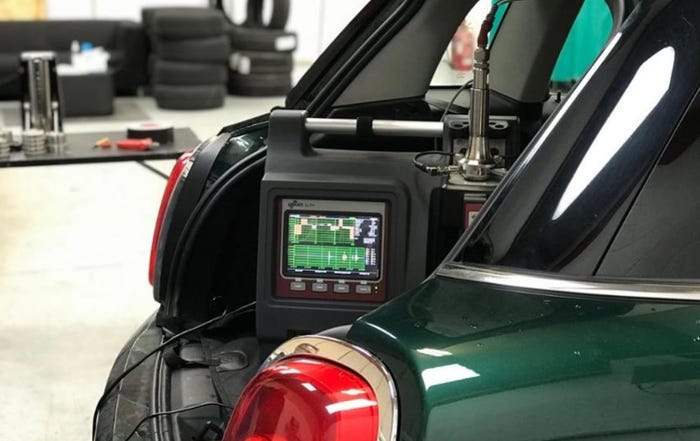AlliedSignal brakes put Bosch in systems business.
The biggest news coming out of the 1996 Society of Automotive Engineers (SAE) annual congress wasn't announced at a press conference and wasn't on the show floor It came from Pans when Robert Bosch Gmbh and AlliedSignal Inc. ended more than a year of negotiations with Bosch agreeing to buy AlliedSignal's passenger car, light- and medium-duty vehicle hydraulic foundation brake and antilock braking
April 1, 1996

The biggest news coming out of the 1996 Society of Automotive Engineers (SAE) annual congress wasn't announced at a press conference and wasn't on the show floor It came from Pans when Robert Bosch Gmbh and AlliedSignal Inc. ended more than a year of negotiations with Bosch agreeing to buy AlliedSignal's passenger car, light- and medium-duty vehicle hydraulic foundation brake and antilock braking system (ABS) businesses for $1.5 billion in cash.
The deal puts Bosch in the brake-systems business, all but eliminates AlliedSignal from the OEM brake parts market and could be a harbinger of future supply base shuffling.
Once approved by European Union and U.S. anti-trust officials (neither side expects problems), the sale will catapult Bosch into position as the world's undisputed leading ABS supplier with more than a third of the market.
Bosch picks up 24 production facilities employing some 11,000 people in the U.S., France, Spain, Italy, Poland, Mexico, Brazil, Turkey and Portugal and through joint ventures in India, China and Korea. These plants manufacture disc and drum brakes, master cylinders, proportioning valves, vacuum pumps and boosters, rotors and hubs, foundation brakes and ABS.
More important than the addition of brakes to the Bosch product portfolio is the total brake system capability the acquisition enables. Complete brake systems already are offered by Bosch's chief ABS competitors ITT Automotive, Lucas Industries Inc., Varity Kelsey-Hayes and General Motors Corp.'s Delphi Automotive Systems.
Industry response to the move is generally positive, even from the competition. "They've both been strong competitors in the past and will continue to be together," says John Utley, chairman of Varity Kelsey-Hayes and senior vice president of Varity Corp. "They will be a formidable competitor, but they are both huge companies with vastly different cultures. It's like a pair of elephants dancing. It'll be interesting to see if they can dance to the same rhythm."
Customers of AlliedSignal ABS, which has had some high-profile problems of late, are encouraged by the planned acquisition. "It was certainly in our interest," says Thomas T. Stallkamp, Chrysler Corp.'s executive vice president of procurement and supply. "We had done some resourcing away from AlliedSignal."
Using 1995 global market share numbers, the acquisition takes Bosch from 29% to 35%, putting a little distance between it and prime competitor ITT, which has 28% of the market. Purchase of the foundation brake business makes Bosch an instant player in that arena, because AlliedSignal has 28% of the North American market.
When the deal is approved, AlliedSignal will still have $3.5 billion in automotive business. Remaining product lines include heavy-duty foundation air brakes and ABS, aftermarket filters, spark plugs and replacement brakes.
The Bosch-AlliedSignal deal is arguably the biggest since the beginning of the consolidation trend among automotive suppliers. But Daron Gifford, a partner in the Deteitte & Touche Consulting Group's automotive industry practice, says it may just be a preview of things to come. "It's the first of many moves where a major player decides to get out of the OEM business," he says. "There will be some other shakeout before it's over."
Bosch 29% ITT 28% Kesley-Hayes 16% Delphi 13% Others 8% AlliedSignal 6% Source: Industry sources
Read more about:
BoschYou May Also Like



